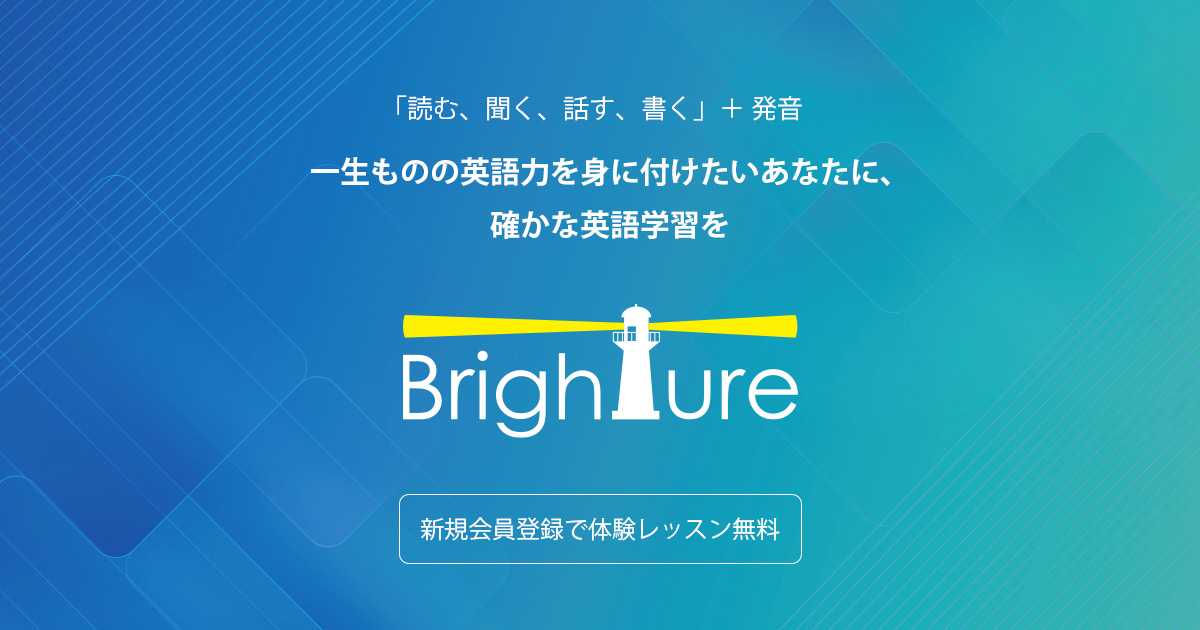24 9月 【英語エッセイ】It’s Giving Slang: Decoding How Gen Z Talks(「スラング感、強め」:Z世代の話し方を読み解く)
Vocabulary
本文の前に、このエッセイで使われている単語やイディオムをご紹介します。実際にどのように使われているか確認しながらエッセイをお楽しみください。
- decode – (難解なものを)解読する、読み解く
- set the tone – 雰囲気・基調を決める、方向性を示す
- mediocre – 平凡な、ぱっとしない、可もなく不可もない
- arsenal of expressions – 表現の引き出し(多様な言い回しの集まり)
- walk away (from confrontation) – 衝突・対立を避けて身を引く
- voice out (opinions) – 意見をはっきりと述べる
- redefine – 再定義する、従来の意味を見直す
- turn A into B – AをBに変える(比喩的な変換含む)
- appreciate a mindset – 考え方・価値観を理解し、受け入れる
- authenticity – 真実性、飾らない本物らしさ
- inclusivity – 包摂性、多様性を受け入れる姿勢
- self-expression – 自己表現、自分らしさの発露
- narrate life – 人生を語るように描写する
- absurd – 不条理な、ばかげた、ナンセンスな
- playful – 茶目っ気のある、遊び心に富んだ
- ironic – 皮肉な、逆説的な
- layered (humor) – 層になった/複数の意味が込められた(ユーモア)
- exaggeration – 誇張、大げさな表現
- connect with others – 他者とつながる、共感を築く
- adapt to (changes) – (変化に)適応する、順応する
If you’ve ever lived or worked with someone from Gen-Z, chances are you’ve had a moment where you thought, “What on earth did they just say?” Maybe it was a word like “slay” or a phrase like “the math is not mathing.” If you’ve ever felt left out, confused, or disconnected, then buckle up! I’m here to decode these slang terms for you. It may seem confusing at first, but once you understand them, you’ll realize they’re not just random words; they are how Gen Z connects, jokes, and expresses themselves.
For starters, Gen-Z’s everyday vocabulary sets the tone. Words like “slay”, “ate”, “period” and “killed it” are normal expressions of showing approval. Simply saying “you did great” might sound too boring.
For instance:
“Have you seen her performance? She did great!”
→ “Have you seen her performance? She absolutely slayed it! Period! She killed it! She ate!”
And the way to call something or someone mediocre, unimpressive, or boring? Just say “mid.”
But that’s just the beginning. Gen Z has a whole arsenal of expressions you will hear all the time. Here are some of the essentials:
Cap – lies, not true
Fax – truth
Clap back – a witty or savage reply to an insult
Gag – to be shocked, amused or overwhelmed
Rizz – charm or flirting ability
Snacc – extremely attractive/ sexy person
IYKYK – “if you know, you know”
IMO – “in my opinion”
It’s giving.. – used to describe the vibe or look of someone or something
Fax – 真実、本当のこと
Clap back – 機転の利いた鋭い反撃
Gag – 驚きすぎて息を呑む、笑いすぎてむせる
Rizz – 異性にモテる力、口説きスキル
Snacc – めちゃくちゃ魅力的な人
IYKYK – 「知ってる人にはわかる」
IMO – 「私の意見では(In My Opinion)」
It’s giving.. – ~っぽい、~って感じ
This is an example of a chronically Gen-Z conversation:
A: Did you hear Josh said he ran a marathon yesterday?
B: That’s cap. He can’t even run to the fridge.
A: Fax! And then he tried to clap back at me when I called him out.
B: What did he say?
A: Something about me being lazy, but I just gagged at how weak that comeback was.
B: Lol, true. But low-key, he’s got rizz. You saw how he was talking to Mia?
A: Ugh, don’t remind me. She was looking at him like he was a whole snacc.
B: IYKYK… she always falls for that type.
A: IMO, she deserves better.
B: Right? But honestly, her outfit yesterday? It’s giving main character.
A: Period. She ate that look.
B:それ、嘘(cap) じゃん。あいつ、冷蔵庫まで走るのだって無理だよ。
A:ほんとそれ(fax)! で、私がツッコんだら言い返し(clap back)てきたの。
B:何て言ったの?
A:私のこと、怠け者とかって感じのこと。でも、その返しがめちゃくちゃ弱くて笑っちゃった(gagged)。
B:ハハ、マジで。でもさ、ぶっちゃけジョシュってモテる(rizz)んだよね。ミアと話してたときの感じ、見た?
A:うわ、思い出したくない。ミア、めっちゃジョシュのことイケメン(snacc)って感じで見てたじゃん。
B:わかる人にしかわかんない(IYKYK)けど……。ミアって、ああいうタイプにいつもハマるよね。
A:私的には(IMO)、ミアにはもっとマシな人がいると思うけど。
B:だよね? でも、ミアの昨日の服ってさ? めっちゃ目立ってた。主人公感(It’s giving main character)ハンパなかったよ。
A:ほんとそれ(Period)。あのコーデ、めっちゃキメてた(ate)ね。
And if you think learning these words make you an expert, you couldn’t be more wrong! Gen Z slang is not only about single words—it also comes alive in phrases that narrate life as if it were a movie or a meme. Turning simple moments into something bigger, funnier, or more dramatic is the essence of how Gen Z communicates.
Here are some of the favorites:
“Do it for the plot”– this means try something just for the experience, as if life were a story.
A: Should I dye my hair pink?
B: Yes, do it for the plot.
意味:人生を物語のように考えて、経験のために何かやってみる
A:髪、ピンクに染めようかな?
B:いいじゃん、経験のためにやっちゃえ。
“Lives rent free in my head” – refers to something you cannot stop thinking about.
“That TikTok sound lives rent free in my head.”
意味:頭から離れない(良い意味で)
例:あの TikTok の音源、頭から離れないよ
“This slaps”– means something is really good, often music or food.
“This sushi slaps!”
意味:めちゃくちゃいい(特に音楽や食べ物)
例:この寿司、マジうまい!
“Let him/her cook” – telling others to be patient because someone is about to make a great point or show their skills.
A: Why is he talking so much?
B: Relax, let him cook.
意味:誰かが良いことやスキルを披露しそうだから、焦らず見てるように言う
A:あいつ、なんであんなに喋ってるの?
B:まあ、ちょっと待ってやれよ。いい感じになるから。
“Touch grass” – a playful way to tell someone to log off from the internet and reconnect with reality.
“You’ve been gaming for 12 hours, go touch grass.”
意味:ネットから離れて現実に戻れ、と軽くからかう表現
例:12時間もゲームしてんじゃん。外出て現実感じてこいよ。
When it comes to compliments, Gen Z also has their own style. Sometimes it is just a single word packed with hype, like “queen”, “diva”, or GOAT (greatest of all time). Other times, compliments start out normally with phrases like “I like you,” “You’re pretty” or “You seem really nice,” but then comes the twist. Instead of ending there, it is after the comma that things get weird, random, but wholesome wishes.
Examples:
・I like you, I hope both sides of your pillow are cold.
・You’re such a good person, I hope there’s always enough milk for your cereal.
・You are incredible, I hope your one month rent is free.
・好きだよ、枕の両面がいつもひんやりしててほしいな。
・めっちゃいい人だね、シリアル用の牛乳がいつもちゃんとあるといいね。
・マジで最高だよ、1ヶ月分の家賃がタダになるといいね。
The trick is, the wishes are always oddly random and unexpected. Then there’s the most creative form of compliment, which is both hilarious and mildly disturbing. It follows the same structure—beginning with a kind statement but ends with something that sounds mildly threatening.
Examples:
・I like you, don’t go bald.
・You’re funny, please don’t die.
・You’re nice, you can come out of the basement.
・You’re such an incredible person, always take care during Friday the 13th.
・好きだよ、ハゲないでね。
・君って面白いね、死なないでね。
・優しい人だね、地下室から出てきていいよ。
・本当に素敵だね、13日の金曜日には気をつけてね。
The darkness in these types of compliments makes them the best, because they are the ones that are really thought about.
In the same way, Gen Z has also redefined insults, making them more playful and witty compared to older generations. They don’t usually voice out insults directly, often, they will just walk away or use humor instead of rage. Screaming things like “I hope you die,” “I hope you get hit by a truck” or “f off” seem to be a thing of the past. If Gen Z, on the other hand, decides to give insults, they make it more specific.
「死ねばいいのに」「トラックに轢かれろ」「くたばれ」などの露骨な暴言は、もはや古いのです。Z世代が悪口を言うときは、より具体的な表現を用います。
For Starters:
・You look like the before picture. (referring to the “before” photos in “before & after” shots)
・You look like you were made by AI.
・You look like you don’t clean your microwave.
・お前って、ビフォーアフターの「ビフォー」みたいな顔してるな。(「ビフォー&アフター」写真のビフォーの意味)
・お前、AI が作ったみたいな見た目だな。
・なんか、電子レンジ絶対掃除してないだろって感じの見た目だな。
It’s about creativity! Don’t just say “you’re dumb,” “you’re bad at doing that,” or “I don’t like you,” elevate them by saying:
・Wisdom is chasing you, but clearly, you’re faster.
・Haters will discourage you, listen to them.
・You have a hidden talent, keep it hidden.
・You talk faster than your brain can think.
・I envy the people who have not met you.
・Stop the negative comments, I can’t like all of them. (when on social media)
・アンチの言うことに、ちゃんと耳を貸しなよ。
・才能あると思うよ、そのまま隠しておいてね。
・あなたの口、脳が考えるより早く動いてるよね。
・君に会ったことない奴らが、マジでうらやましいわ。
・ネガティブなコメントやめなよ。全部「いいね」押せないから。
Some of the insults are framed as inconvenient wishes, like:
・I hope your phone charger only works at a certain angle.
・I hope you feel the seams in your socks.
・I hope your favorite books get turned into horrible Netflix action remakes.
・I hope all days in your calendar are Mondays.
・I hope you step barefoot on a LEGO.
・I hope every YouTube ad you see is unskippable.
・靴下の縫い目がずっと気になりますように。
・お気に入りの本が、ひどい Netflixドラマになりますように。
・カレンダーがずっと月曜日で埋まりますように。
・素足でレゴを踏んじゃいますように。
・YouTube の広告が全部スキップ不可になりますように。
So, who exactly are Gen Zs?
Gen Zs include those born between the late 1990s and early 2010s. They are digital natives who grew up surrounded by technology, memes, and social media. They are creative, ironic, and fast-paced communicators. Humor for them is often layered, sometimes absurd, sometimes dark, and full of inside jokes that only make sense within their online culture. They value authenticity, inclusivity, and self- expression, which is why their slang is not just about words, it is about building identity and connection in a world where online and offline life mix together.
Z世代とは、1990年代後半から2010年代前半に生まれた世代を指します。
テクノロジー、ミーム、SNS と共に育った彼らは、完全なる「デジタルネイティブ」です。彼らは創造的で、皮肉を交え、テンポの速いコミュニケーションを交わします。ユーモアは多層的で、ときに不条理で、ダークで、ネット内でしか通じない内輪ネタに満ちています。彼らが大切にしているのは、本音であることと多様性を受け入れること、そして自分らしくあることです。だからこそ、Z世代のスラングは単なる言葉遊びではなく、オンラインとオフラインが混ざり合うこの世界で、自分のアイデンティティをつくり、人とつながるための手段になっているのです。
Understanding Gen Z slang is not just about memorizing words, it’s about appreciating a mindset. Their way of speaking turns everyday life into entertainment, where compliments are quirky, insults are clever, and conversations are full of memes, exaggerations, and irony.
It may sound confusing at first, but once you get it, you’ll realize it’s actually creative, expressive, and most importantly, fun! After all, language evolves with each generation, and Gen Z’s slang is proof that words will always adapt to keep up with how people connect.
Brighture のレッスンにご興味のある方はこちらからどうぞ。
この記事を書いた Hanna のレッスンも受けられます。



